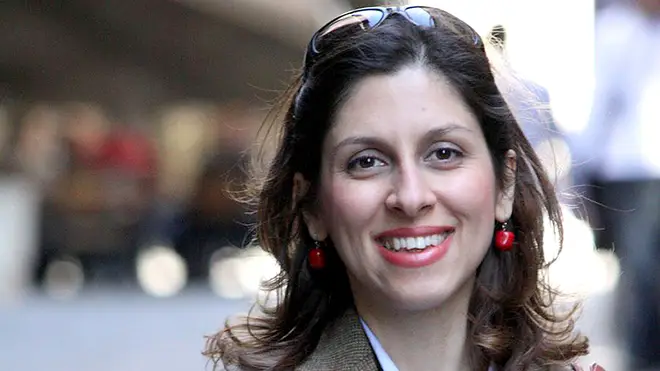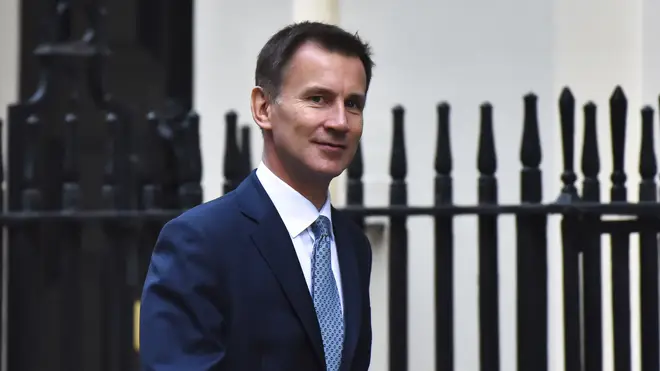
James O'Brien 10am - 1pm
11 March 2019, 11:16 | Updated: 28 October 2019, 15:53

Foreign Secretary Jeremy Hunt has granted the British-Iranian mother Nazanin Zaghari-Ratcliffe diplomatic protection, but what is it and how will it help her release from prison in Iran?
The British-Iranian charity worker has been held in Iran since April 2016 after being accused of spying, allegations she denies.
According to her husband, Nazanin began a 3-day hunger strike in January to protest a lack of specialist medical treatment for neck pains and numbness in her limbs.
But after repeated calls by the Foreign Office for her release, Jeremy Hunt granted her diplomatic protection.
Diplomatic Protection is a mechanism under international law where a state can take diplomatic action against other states on behalf of its citizens whose rights have been breached, making the case a legal dispute between Britain and Iran.
Nazanine's husband, Richard Ratcliffe, said that the new status would now make it more difficult for Iran to turn down UK requests for visits her in prison to check her condition. He said his wife’s health was "obviously not in a great position, but I’m not sure how bad".

The Foreign Secretary Jeremy Hunt granted diplomatic protection to Nazanin Zaghari-Ratcliffe in response to Iran's treatment of her in prison.
Jeremy Hunt said that assurances by Iran that she would receive medical treatment have not been fulfilled.
"This represents formal recognition by the British government that her treatment fails to meet Iran's obligations under international law and elevates it to a formal state-to-state issue," he said.
The Foreign Secretary added that he didn't take the decision "lightly", but took into consideration not only the lack of medical attention, but also a "lack of due process in the proceedings brought against her" by Iran.

Yes - diplomatic immunity is given to diplomats in order to ensure safe passage and protection from prosecution.
Whilst diplomats can still be expelled - as seen when countries across Europe and North America expelled Russian diplomats after the Salisbury nerve agent attack - they are protected against prosecution in their host country for the duration of their posting.
However immunity does not give diplomats a 'get out of jail free' card. Diplomats are not above the law and are obliged to conduct themselves in accordance to the law of the host state. If somebody with diplomatic immunity is involved with misconduct, responsibility lies with the sending state, who can decide whether to take action by recalling the diplomat back to its country or waiving the immunity, which allows the host country to take action.
Iran has refused to acknowledge the British-Iranian's duel nationality, and has argued the UK's decision to grant her diplomatic protection 'illegal'.
In a tweet, Iran's ambassador to the UK said that the move "contravened international law".
Hamid Baeidinejad said: "UK Govt's extension of diplomatic protection to Ms Zaghari contravenes int'l law. Govts may only exercise such protection for own nationals. As UK Govt is acutely aware, Iran does not recognize dual nationality. Irrespective of UK residency, Ms Zaghari thus remains Iranian. [sic]"